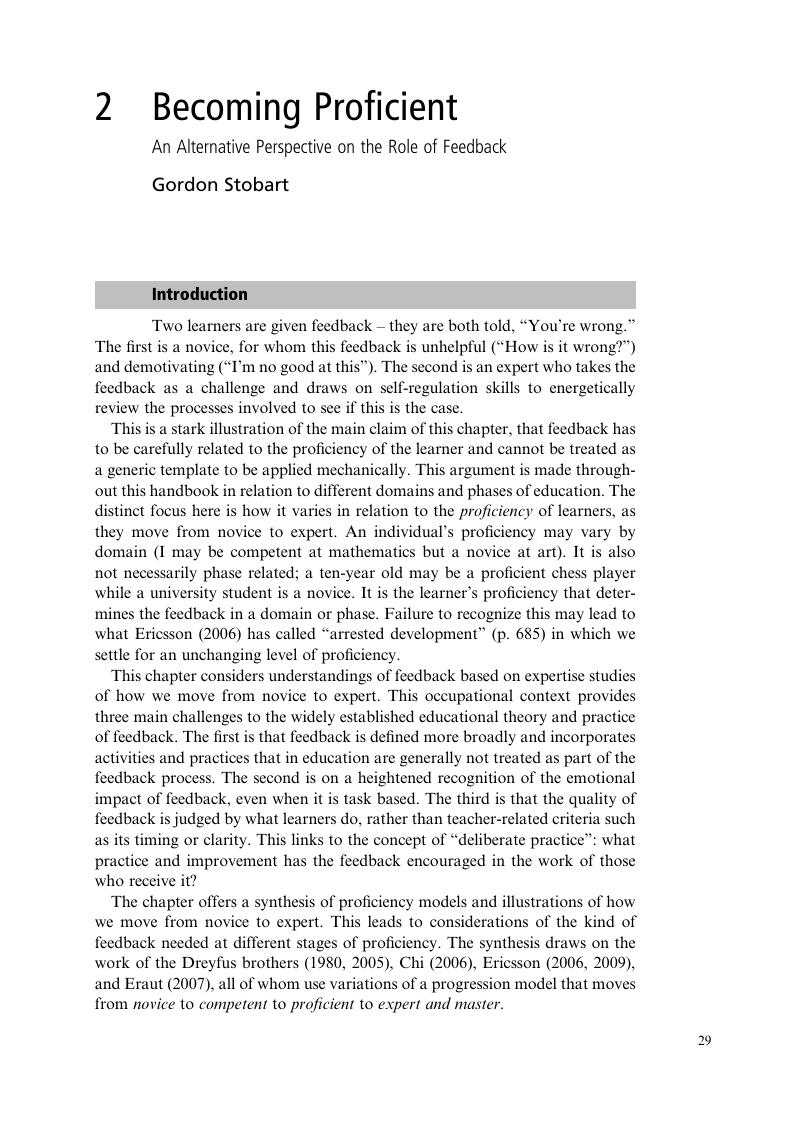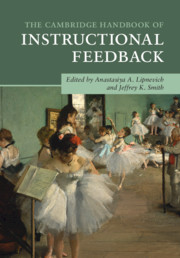Book contents
- The Cambridge Handbook of Instructional Feedback
- The Cambridge Handbook of Instructional Feedback
- Copyright page
- Contents
- Figures
- Tables
- Contributors
- Foreword
- Preface
- Acknowledgments
- Part I Theoretical Foundations
- 1 Feedback
- 2 Becoming Proficient
- 3 Summative and Formative Feedback
- 4 Toward a Taxonomy of Written Feedback Messages
- 5 Methods in Feedback Research
- Part II Domain-Specific Feedback
- Part III Contexts and Sources of Feedback
- Part IV Student Responses to Feedback
- Part V Concluding Remarks
- Index
- References
2 - Becoming Proficient
An Alternative Perspective on the Role of Feedback
from Part I - Theoretical Foundations
Published online by Cambridge University Press: 02 November 2018
- The Cambridge Handbook of Instructional Feedback
- The Cambridge Handbook of Instructional Feedback
- Copyright page
- Contents
- Figures
- Tables
- Contributors
- Foreword
- Preface
- Acknowledgments
- Part I Theoretical Foundations
- 1 Feedback
- 2 Becoming Proficient
- 3 Summative and Formative Feedback
- 4 Toward a Taxonomy of Written Feedback Messages
- 5 Methods in Feedback Research
- Part II Domain-Specific Feedback
- Part III Contexts and Sources of Feedback
- Part IV Student Responses to Feedback
- Part V Concluding Remarks
- Index
- References
Summary

- Type
- Chapter
- Information
- The Cambridge Handbook of Instructional Feedback , pp. 29 - 51Publisher: Cambridge University PressPrint publication year: 2018
References
- 21
- Cited by

